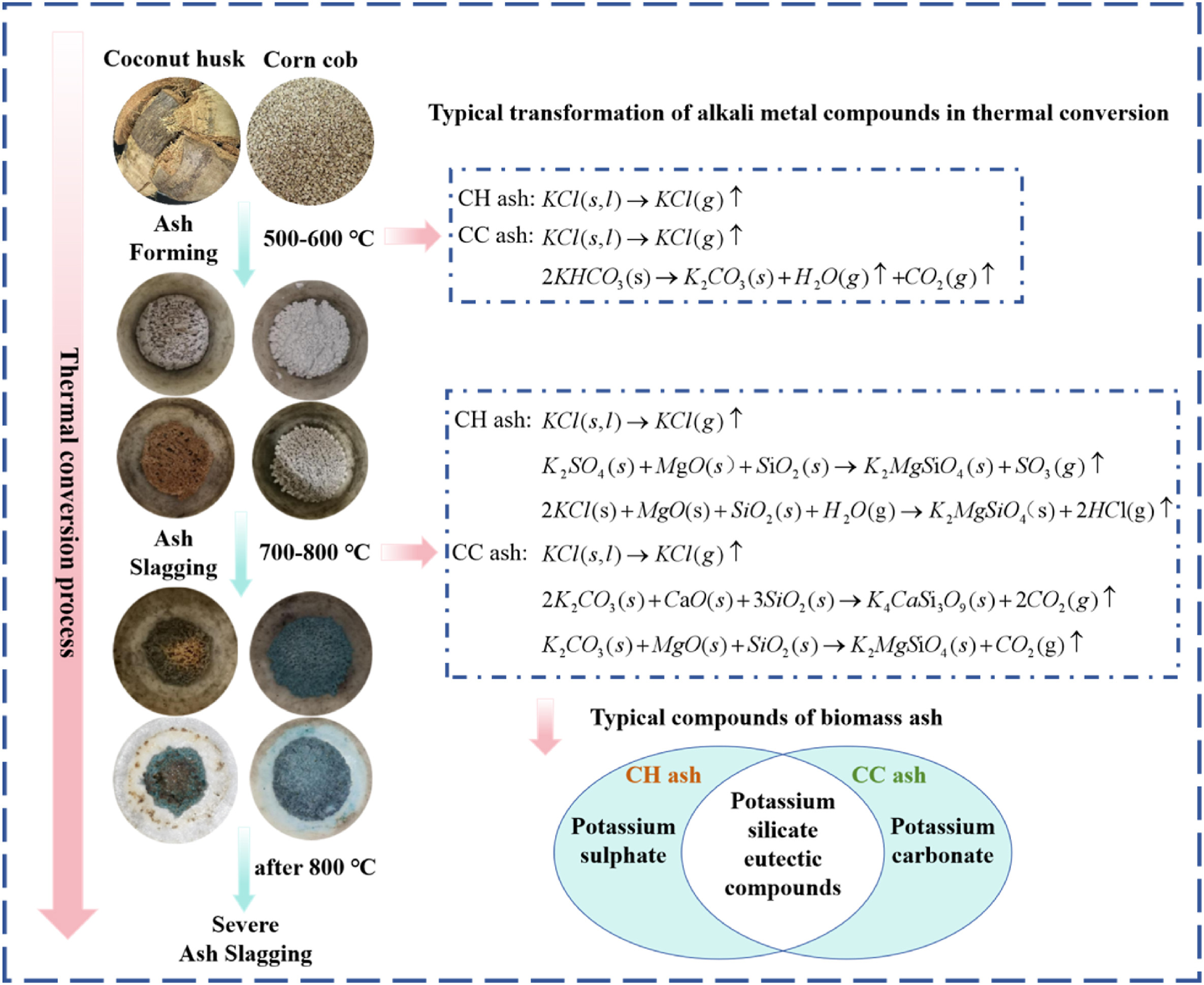
DOI number:10.1016/j.energy.2025.136800
Journal:Energy
Key Words:Alkali metal migration; Ash slagging; Biomass ash; Thermal conversion
Abstract:Severe slagging phenomena in biomass ash under elevated temperatures have been associated with alkali metal migration. It is imperative to conduct research on alkali metal migration in biomass ash slagging during thermal conversion. Here, the migration of alkali metals in two K-type biomass ashes (coconut husk ash and corn cob ash) during thermal conversion was investigated. The study concluded that alkali metal migration is a primary cause of biomass ash slagging, with elevated ashing temperatures promoting this migration. At temperatures above 700 °C, silicate eutectic compounds formed in biomass ash, promoting intensified ash slagging. KCl, K2SO4, and K2CO3 all exhibit a tendency to transform into eutectic silicate compounds in high-temperature environments. The water leaching treatment of biomass raw materials notably inhibited the formation of ash, and the ash yield decreased by 55.58 %. This research explores alkali metal migration in K-type biomass ash during thermal conversion and explores its impact on biomass ash slagging. This mechanistic understanding advances predictive capabilities for biomass combustion systems and informs the development of anti-slagging technologies in thermochemical conversion applications.
Indexed by:Journal paper
Document Code:136800
Volume:329
Translation or Not:no
Date of Publication:2025-06-14
Included Journals:SCI
Links to published journals:https://www.sciencedirect.com/science/article/pii/S0360544225024429?via%3Dihub
